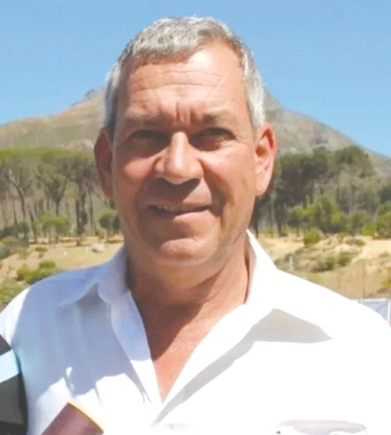Just as Ghana’s creative community was honouring one of its icons, tragedy was unfolding in the wilds of Namibia - a tragic reminder of the fragile balance that exists between tourism and nature.
On Friday, May 30, 59-year-old German businessman Bernd Kebbel, was attacked and killed by a lone lioness while camping with his family and friends near the Hoanib Skeleton Coast Camp.
According to Namibia’s Ministry of Environment, Forestry and Tourism, the attack occurred when Kebbel left his tent to use an outdoor bathroom in the early morning hours.
Despite swift responses from camp staff and wildlife officials, the injuries proved fatal.
The lioness was tracked and monitored closely over the next two days.
On Sunday, June 1, the ministry made the difficult decision to “put down” the lioness.
Ministry spokesperson, Ndeshipanda Hamunyela, explained that the animal had become “habituated to human presence and posed an ongoing threat to both tourists and local communities.”
While such decisions often stir public debate, conservation experts generally agree that a predator which attacks humans cannot safely remain in the wild.
Habituation - the loss of a wild animal’s natural fear of people - increases the likelihood of repeated encounters and further danger.
The Hoanib region, part of Namibia’s remote Kunene area, is renowned for its desert-adapted lions - a rare population capable of surviving in arid conditions.
These lions are a major draw for safari tourism, which contributes significantly to the country’s economy.
Wildlife tourism
This incident, however, underscores the inherent risks of wildlife tourism, especially in unfenced or open territories.
Tourists seek close-up experiences with Africa’s majestic creatures, but these encounters come with unpredictability.
Nature is not a theme park. It cannot be scripted.
It was good that the authorities acted swiftly after the incident, as the action was both to prevent another potential tragedy and to reassure tourists and local communities that safety remains a top priority.
The lion, one of the Big Five of African wildlife tourism (the other four being leopard, rhino, elephant and buffalo), is a big draw for tourists across the world to Africa, symbolising the raw power and majestic beauty of the continent’s untamed wilderness.
As African countries expand their eco-tourism footprints, the challenge lies in balancing conservation, community safety and tourist experience. Namibia has been a leader in community-based natural resource management, often cited as a model in sustainable wildlife tourism.
Yet this event reveals how even the best-managed systems must constantly adapt.
For the Kebbel family, this is an unthinkable personal loss.
For the Namibian, and largely the African wildlife tourism industry and conservation community, it is a painful yet sobering moment - a reminder that with every awe-inspiring moment on safari comes an unspoken pact: to respect the wild, not romanticise it.
The writer is a Ghanaian media executive, columnist and tourism advocate and Founder of Maestro Africa Group.
He hosts the Africa Rising podcast and writes Explore Africa column, chronicling trends, issues and stories across the continent’s vibrant travel, culture and creative industries.

